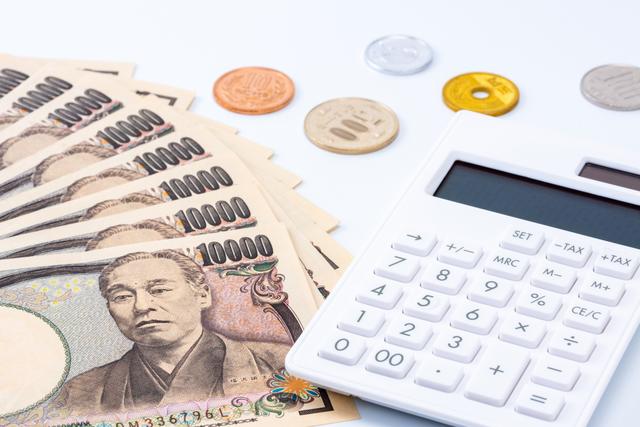Properties that are subject to inheritance tax and are not eligible for inheritance tax | @Dime at Daim
To calculate the inheritance tax amount, it is necessary to understand all the property of the deceased, which is very time -consuming.If you want to calculate the inheritance tax on your own, first check the taxable conditions.Introducing the property and tax calculation methods to be taxed, and the deductions that can be applied.
* This information is at the time of writing.
What is "inheritance tax" for heritage?
Inheritance tax may be incurred if the heritage of a nearby person is taken over.Since the payment is set for payment, it is recommended that you know the need for tax payments and unnecessary as soon as possible.
Here is an overview of what the inheritance tax on heritage is.
Taxes levied at the time of inheritance
"Inheritance tax" is a tax incurred when the heritage is inherited.
The deceased who passes the heritage is called the "inheritance" and the person who receives the heritage is called the "heir."The main purpose of the government collecting inheritance tax is "redistribution of assets" and "preventing economic disparity".
If the inheritance tax is imposed on the inheritance, the collected money will be the government's financial resources.As a part of the funds used for society, it benefits many people.
Inheritance tax is a mechanism that imposes more expensive taxes for those who have a large amount of heritage to receive.Collecting taxes from wealthy people will prevent social economic disparities from becoming normal.
It is not always taxed
Inheritance tax only occurs when the inherited heritage exceeds the basic deduction."Basic deduction" is a tax -exempt border line set by the government.
The deduction amount also depends on the number of inherited receivers.Calculate how much the basic deduction will be.
For example, if there are four heirs, the formula is "30 million yen + (6 million yen x 4) = 54 million yen".If the sum of the inheritance's heritage is up to 54 million yen, you do not need to pay the inheritance tax.
In addition, even if the total heritage is exceeded the basic deduction, the inheritance tax may not be charged by applying the debt deduction, other deductions and special cases.
Reference: Inheritance tax and gift tax revision (enforced January 1, 2015) |
Who is the subject of the inheritance tax?
(Source) Photo-AC.com
Inheritance tax is a tax led by the heritage received.So who is the taxable?Let's also look at the percentage of those who have inherited the inheritance tax among those who have inherited the heritage.
Those who received the heritage
It is stipulated that the inheritance tax must be paid to the person who inherited the heritage.Note that the taxable target is not necessarily legal heirs.
Due to the significant reduction in the basic deduction, those who were not eligible before the amendment began to impose inheritance tax.
The purpose of reduction is to realize a tax system that matches the social and economic situation.The basic deduction before the revision was enacted during the bubble period, when land prices were soaring, and did not meet the current situation.
In order to achieve the original purpose of the inheritance tax of "re -distribution of assets", the government has reset the basic deduction amount to meet the current state of land prices.
Reference: Overview of the declaration of inheritance tax for the first year | National Tax Agency Reference: Inheritance Tax Mushi | National Tax Agency
Properties to be taxed
(Source) Photo-AC.com
There are three types of assets that are subject to inheritance taxes: the original inheritance, inheritance property, and the gift of life.Let's take a concrete look at each content.
"Original inheritance property" acquired by inheritance and bequest
"Original inheritance property" is a thing owned by the heir and is recognized as a "plus property".
Regardless of the operation or real estate, all economic assets are considered inheritance.Specifically, the following assets are:
Various rights, such as loans, patent rights, copyrights, and telephone subscription rights are also included in the inheritance.
Reference: No.4105 Inheritance tax assets | National Tax Agency
"Owned inheritance property" that occurs at the time of death
Even if it is not the property obtained by inheritance or bequest, the property caused by the death of the heir is the "deemed inheritance property".The inheritance tax law stipulates that it is subject to tax, and it is necessary to pay the inheritance tax.
The following property falls under deemed inheritance.
The above -mentioned property is regarded as an inherited property to prevent tax unfair.
If the property generated by the death of the heir is tax -exempt, some people will be taxed and those who are not imposed, despite the same amount of money.
For example, a person who inherits the original inheritance of 100 million yen is subject to inheritance tax, whereas "people who have obtained 100 million yen with insurance money" are not obliged to pay.
Since this lacks fairness, the law is subject to tax as "deemed inheritance property" as a "deemed inheritance property."

Properties given within 3 years of inheritance
Even if the heir is giving a gift as a tax saving measure, the gift "property within three years before dying" is considered an inheritance property.
Even if the gift is 1.1 million yen, what you receive within three years of death will be added to the inherited property.
Prominated gifts, which are substantially regarded as inheritance, must be included in the taxable heritage.However, even if you receive a gift within three years, if you receive the following special cases, it will not be subject to inheritance tax.
Also, be aware that if you use a tax -exempt frame of 25 million yen in the "Inheritance Settlement Tax System", an inheritance tax will be charged instead of a gift tax.
However, what you have as antiques and art is not considered a ritual property.For example, a typical example is Buddha statues and Buddha paintings that the heir possessed for ornamental use, and Buddhist equipment purchased for investment purposes.
Those that are highly valuable enough to be sold and redeemed are subject to inheritance tax even if it is related to Shinto and Buddha.
Reference: No.4108 Property without inheritance tax | NTA
Properties donated to national and local governments
Specials are applied to donations to national and local governments and specific public interest corporations and are not subject to taxation.All of the following conditions must be met to apply.
Certain public interest corporations include organizations that greatly contribute to education, charitors and cultural activities, such as the Social Welfare Corporation and the Independent Administration.
In addition, if the heir is deemed to have operated a business for the purpose of public interest, such as religion, charity, and academic, the property of the business is not subject to tax.However, it is assumed that the heir will take over the business.
In each case, a tax return must be submitted by the inheritance tax filing deadline.Attach the necessary documents to the declaration and submit within 10 months from the day after you know that the heir died.
Reference: No.4205 Inheritance tax declaration and tax payment | NTA
Retirement allowance / insurance money up to a certain amount
Death retirement and death insurance are the "deemed inheritance property".However, the inheritance tax is not subject to "5 million yen x the number of legal heirs".
If there are three legal heirs, death retirement and insurance up to "500 x 3 = 15 million yen" will be exempt.If the death retirement allowance is 50 million yen, it will be "50 million yen -15 million yen = 35 million yen", so only 35 million yen is subject to tax.
Even if there are people who have abandoned their inheritance, there is no need to reduce the number of people.When calculating the deduction amount, consider it as "there was no abandonment of the statutory heir".
Procedure for looking for inheritance tax
(Source) Photo-AC.com
Inheritance tax cannot be calculated with a simple calculation method that only has a specific tax rate to the total heritage.
It is necessary to calculate the total amount of heritage, calculate the total amount of heritage, calculate the total amount of inheritance tax, and calculate the amount paid by each heir.
Let's look at the calculation method step by step.
Calculate "Total amount of heritage"
First, we know how much the inheritance's heritage is.We will calculate the total heritage amount by adding all of the derivative gifts, real estate, and deemed inherited property within 3 years.
The following items should be subtracted from the heritage.
Inherited property must be evaluated at the market price on the date of inheritance (the dead date of the heir).
For evaluation of property other than cash, you can use the manual "Property Evaluation Basic Notice" provided by the NTA.Evaluation criteria and calculation methods such as "Land evaluation", "building evaluation", and "evaluation of listed shares" are listed.
However, the conditions for land are detailed and the evaluation method is complicated.It will be difficult to calculate correctly without expertise.Since the total heritage is the basis of inheritance tax, it is recommended that experts calculate the correct valuation.
Property evaluation | National Tax Agency
Calculate "total tax heritage"
Once you know the total heritage, calculate the total amount of the heritage that is actually subject to tax."30 million yen + (6 million yen x number of legal heirs)" is given a basic deduction.
For example, if the person who inherits with the total heritage "200 million yen" is "spouse and two children", the method of finding the total tax heritage is as follows.
In this case, 152 million yen is subject to tax of 152 million yen out of the total heritage of 200 million yen.
Calculate "Total amount of inheritance tax"
Once the total tax heritage is calculated, calculate the inheritance tax paid by each heir.After that, let's add the total amount of the inheritance tax to the total amount of the tax.
The total amount of tax heritage is divided by "statutory inheritance", not just who actually receives it.The statutory inheritance is a guide to the inheritance ratio set by the Civil Code.
Assuming the inheritance amount for each heir, the specified tax rate should be multiplied and the deduction amount is drawn.The main examples of legal inheritance are listed below.
| 相続人 | 法定相続分 | |
| 故人に子どもがいる場合 | 配偶者 | 1/2 |
| 子 | 1/2(人数分に分ける) | |
| 子どもがいない場合 | 配偶者 | 2/3 |
| 父母 | 1/3(人数分に分ける) | |
| 子どもも父母もいない場合 | 配偶者 | 3/4 |
| 兄弟姉妹 | 1/4(人数分に分ける) |
The inheritance tax rate and deduction amount are as follows.
| 法定相続分に応じた取得金額 | 税率 | 控除額 |
| 1000万円以下 | 10% | - |
| 1000万円超~3000万円以下 | 15% | 50万円 |
| 3000万円超~5000万円以下 | 20% | 200万円 |
| 5000万円超~1億円以下 | 30% | 700万円 |
| 1億円超~2億円以下 | 40% | 1700万円 |
| 2億円超~3億円以下 | 45% | 2700万円 |
| 3億円超~6億円以下 | 50% | 4200万円 |
| 6億円超~ | 55% | 7200万円 |
Let's calculate the "when inheriting the total amount of tax heritage of 152 million yen with a spouse and two children" based on the statutory inheritance and the tax rate and basic deduction.
If you pay the provisional tax amount imposed on each of the above calculations, all will be combined.In this case, the total amount of inheritance tax is "(1580 + 560 + 560) ¥ 27 million".
Reference: No.4155 Inheritance Tax Tax Rate | National Tax Agency
Calculate the "payment amount" of each heir
Once you know the total amount of inheritance tax, we will re -share it based on who will receive it in the actual inheritance.
If the total inheritance tax is 27 million yen and the actual heritage acquisition ratio is "spouse 1/2", "child 1/4", "child 1/4", the amount paid is as follows.
Once you know the individual inheritance tax amount, deduct various deductions and special expenses that can be applied.The result of the deduction / special calculation is the amount you actually pay.
Three cases where the tax amount is deducted
(Source) Photo-AC.com
Inheritance tax has a deduction that can reduce the tax amount depending on the position and attributes of the recipient.Who will be deducted?Let's look at the three cases.
Deceased spouse
In the heir's spouse, "Reduction of spouse's tax amount" is applied.
The spouse is a system that does not impose an inheritance tax even if you receive a heritage, up to the amount of the person who has a large amount of "160 million yen" or "equivalent to the statutory inheritance of the spouse".
The requirements for receiving the application are as follows.
One of the reasons for deductions for spouses are that they need to be guaranteed for their spouse's retirement.However, in order to receive a deduction, you must submit a tax return to the tax office even if the inheritance tax does not occur.
The deduction amount varies depending on the degree of disability, and there are two types of deduction formulas:
Regarding the age of people with disabilities, the "○ month" of "○ Old ○ Moon" is cut off and calculated.For example, the deduction amount for people with general disabilities at the age of 25 is "(85-25) x 10 = 6 million yen".
If the deduction amount exceeds the inheritance tax amount, it is permitted to subtract the surplus amount from the inheritance tax of the dependent obligator, just like a minor deduction.
Reference: No.4167 Tax deduction for persons with disabilities | National Tax Agency
Configuration / editorial department






![lifehacker lifehacker LifeHacker LifeHacker A carabiner that is convenient for cutting packaging at the entrance. Excellent sharpness for medical blades! [Today's life hack tool] lifehacker lifehacker LifeHacker LifeHacker A carabiner that is convenient for cutting packaging at the entrance. Excellent sharpness for medical blades! [Today's life hack tool]](http://website-google-hk.oss-cn-hongkong.aliyuncs.com/drawing/223/2022-3-2/28016.jpeg)

![lifehacker lifehacker LifeHacker LifeHacker [2021] 7 Recommended Dishwashers | Introducing High Cospa & Compact Products lifehacker lifehacker LifeHacker LifeHacker [2021] 7 Recommended Dishwashers | Introducing High Cospa & Compact Products](http://website-google-hk.oss-cn-hongkong.aliyuncs.com/drawing/223/2022-3-2/30293.jpeg)
Will AI Concierge be realized in 2030? The future of KDDI's R & D (Part 1) | TIME & SPACE by KDDI
lifehacker lifehacker LifeHacker LifeHacker A carabiner that is convenient for cutting packaging at the entrance. Excellent sharpness for medical blades! [Today's life hack tool]
[2021] 11 latest recommendations for microwave ovens and ovens! Thorough explanation of how to choose
[A Certain Scientific Railgun] Popular character ranking TOP30!The first place is "Mikoto Misaka" [Survey results in 2021]